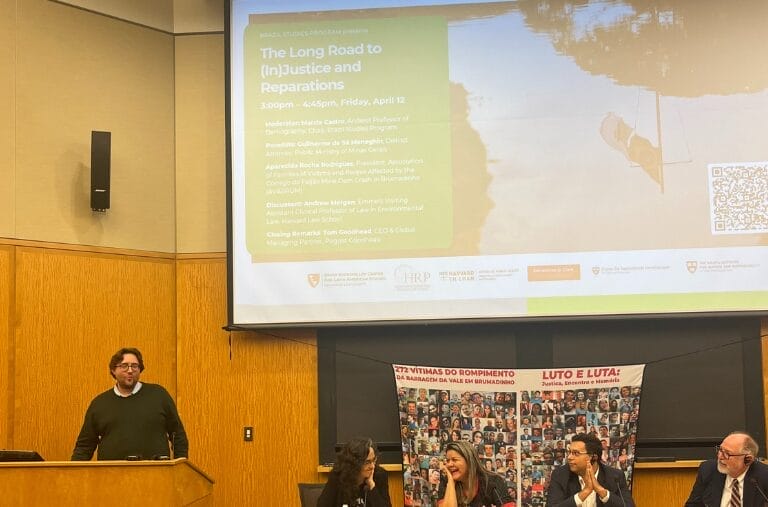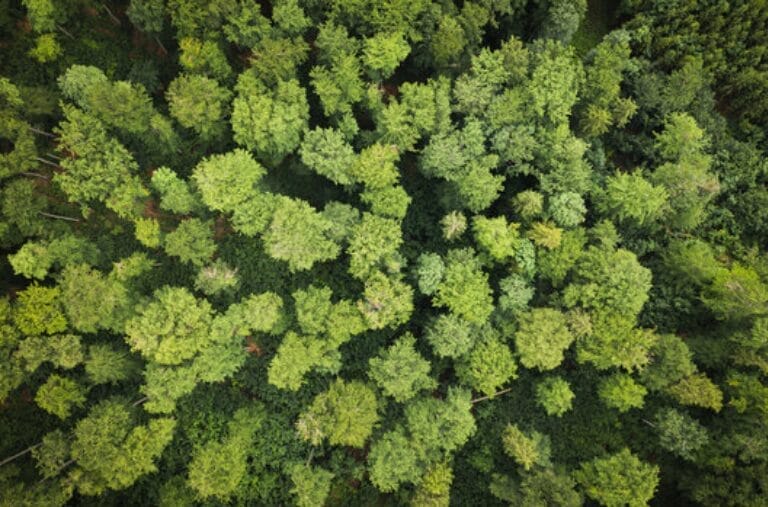Environmental litigation is on the rise as individuals and organizations take to the courts to hold corporations and governments accountable under their environmental and human rights obligations.
This article provides an overview of recent landmark climate change cases and litigation trends.
Milieudefensie v Shell Case
On 26 May 2021, the Dutch District Court of The Hague rendered a landmark ruling in the Milieudefensie v Shell case,[1] ordering Shell’s parent company, RDS, to limit the annual volume of CO2 emissions into the atmosphere.
The reduction order included companies and legal entities with which it jointly forms the Shell group and covered all CO2 emissions due to business operations and sold energy-carrying products.
The volume of CO2 emissions must be reduced by at least net 45% by the end of 2030, relative to 2019.[2]
This decision follows the footsteps of the 2019 Urgenda decision[3] rendered by the Dutch Supreme Court, in which it confirmed the ruling of the lower court that the Dutch Government is obliged to do ‘its part’, pursuant to articles 2 (the protection of the right to life) and 8 (the protection of the right to private and family life) of the European Convention on Human Rights (“ECHR”), to protect Dutch residents from climate change.[4]
To that end, a reduction of emissions of at least 25% by 2020 was ordered.[5]
Interestingly, in interpreting the unwritten standard of care owed to Dutch citizens, the court seems to implicitly accept a horizontal effect of human rights, i.e. the direct application of international human rights between non-state actors such as individuals and businesses.[6]
This Court does so specifically with regard to articles 2 and 8 ECHR and articles 6 (the protection of the right to life) and 17 (the protection of the right to private and family life) of the International Convention on Civil and Political Rights (“ICCPR”).
While acknowledging that human rights obligations cannot directly be invoked in a dispute between non-state actors, the Court still rules that the human rights standards can be used for the purposes of interpreting the unwritten standard of care.
Thus, the scope of the unwritten standard of care is widened, not only to include conduct that is contrary to what is customary in society, but also conduct that breaches a duty of care. The content of this duty of care may be interpreted in light of international human rights standards.
This trend, of formulating or broadly interpreting the unwritten standard of care in environmental protection and/or climate litigation signals the willingness of the Dutch Court to engage in the progressive development of the law to offer as much protection from climate change and environmental harm as possible.
It also illustrates that the judiciary understands the urgency of the threat of climate change and accepts responsibility for its role in mitigating this.
Climate litigation in other jurisdictions
Developments in environmental litigation span beyond the Dutch Courts and there has been an increasing trend across the globe in claimants bringing climate change mitigation cases. The cases indicate that global warming is becoming a progressively more significant consideration in governmental and corporate policies.
- Australia
In Sharma v Minister for the Environment,[7] eight teenagers and a nun brought a class action seeking an injunction from the Australian federal court to prevent Environment Minister, Sussan Ley, from approving an expansion by Whitehaven Coal of a coal mine in New South Wales.[8]
Although the court did not grant the injunction, it ruled that the Environment Minister had a common law ‘duty to take reasonable care’ that young Australians will not be harmed or killed by CO2 emissions. The Australian minister has declared that she will appeal the ruling.[9]
The case illustrates the willingness of courts to issue rulings preventing younger citizens from suffering potential future harm in the context of emissions and environmental litigation. These claimants are able to rely on their youth to show that they will experience foreseeable harm from climate change in their future, adult lives.[10]
2. France
In France, a lawsuit was filed by four NGOs,[11] requesting the French government to take adequate measures to reduce greenhouse gasses, achieve government emissions targets, develop renewable energy sources, adapt the national territory to impacts of climate change and protect the lives and health of French citizens.
On 3 February 2021, the Parisian court found the French government guilty of ‘non-respect of its engagements’ in combating climate change.[12] The decision was hailed as ‘revolutionary’ by Greenpeace France and Oxfam France. As one plaintiff stated, the landmark decision proves that climate inaction is ‘no longer tolerable, it is illegal’.[13]
3. Ireland
In Ireland, Friends of the Irish Environment (“FIE”) brought a case in which it claimed that the 2017 National Mitigation Plan, formulated under the 2015 Climate Act, was insufficiently specific with regards to its objective to transition to a ‘low carbon, climate-resilient, and environmentally sustainable economy’ by 2050.[14]
On 31 July 2020, the Irish Supreme Court unanimously found that the plan fell “well short of the level of specificity required” to provide transparency to ‘interested members of the public’ and comply with section 4 of the 2015 Climate Act.[15]
Dr. David R. Boyd, UN Special Rapporteur on human rights and the environment: “This landmark decision recognizes the urgency of responding to the climate emergency and sets a precedent for courts around the world to follow.”[16]
However, the Court refuted FIE’s assertion that an unwritten right to a healthy environment existed under the Irish Constitution. The reasoning behind this was that environmental impacts on humans are still too scientifically uncertain so as to formulate such a right.[17]
This case reflects a trend in the courts to question climate policies that stipulate vague and aspirational climate objectives without specifying how these are to be achieved in practice.
4. UK
In the UK, three young activists, together with Plan B, a legal charity, have announced they will be bringing a judicial review case against the UK government. The group claim that the government have breached their rights by failing to act on the climate crisis and cutting national carbon emissions.
The activists intend to highlight the links between the climate crisis and social injustices such as gender, race and wealth, emphasizing that the effects of environmental harm are experienced unequally.[18]
In Friends of the Earth v. UK Export Finance,[19] FIE filed a case challenging the UK government’s decision to provide $1 billion in financing for a liquid natural gas project in Mozambique.[20]
FIE allege that the project violates Paris Agreement commitments. According to FIE, the construction of the project alone will increase the carbon emissions of Mozambique by up to 10% in 2022.[21] The High Court has granted FIE permission to move forward with the case, which will proceed to judicial review.
5. Canada
On 28 February 2020, the Supreme Court of Canada rendered a judgment in the Nevsun case, ruling that the worker’s lawsuit could proceed.[22] The case was initially filed in 2014 by three Eritrean workers who claimed that they were forced to work in a mine and were subjected to “violent, cruel, inhuman and degrading treatment”.
The workers alleged that the owner of the mine, the Canadian company Nevsun Resources Ltd., was complicit in the use of forced labor. The workers not only sought damages for domestic torts (including unlawful confinement and negligence) but also for violations of customary international law prohibitions “against forced labor, slavery, cruel, inhuman or degrading treatment, and crimes against humanity”.
The Supreme Court held that customary international law prohibitions “are fully integrated into, and form part of, Canadian domestic law”, provided it does not conflict with any other legislation and can form the basis of a claim for damages.[23]
Notably, the Supreme Court ruled that the application of norms of customary international law is (no longer) limited to States.[24]
With this ruling, the Canadian Supreme Court acknowledges that norms of customary international law may be applicable to corporations, such as Nevsun. This, again, signals a shift towards a broader acceptance of corporate liability for human rights violations.
6. Portugal
In Portugal, six young people are bringing a crowd-funded case against 33 Member States to the European Court of Human Rights (Duarte Agostinho and Others v. Portugal and Others).[25] The claimants allege that the 33 states share responsibility for their contributions to territorial emissions rates, and for the impacts of climate change caused by transnational emissions through fossil fuel extraction, trade and outsourcing.[26] They argue that continuous heatwaves and forest fires threaten their physical and mental well-being, reducing their ability to exercise outdoors and to live without anxiety.[27]
The ECHR afforded priority to the case due to the “importance and urgency of the issues raised”.[28] Interestingly, the Strasbourg Court requested that the defendant states comment on potential violations of Article 3, on the prohibition of torture and inhumane and degrading treatment,[29] despite the fact that the claimants did not originally invoke this right in the complaint. These remarkable actions of the Court acknowledge the serious and urgent nature of climate litigation cases.
7. Germany
On 11 June 2021, the German parliament passed the legislative proposal enacting the Supply Chain Due Diligence Act (“the Act”).[30]
The Act imposes an obligation onto corporations to fulfill their responsibilities in the supply chain with regard to respect for internationally recognized human rights and certain environmental standards.
Most notably, the adoption of the Act signals a “paradigm shift”:[31] from strictly voluntary Corporate Social Responsibility towards binding human rights and environmental obligations for companies.
The law, however, is not nearly as far-reaching as it could be. For instance, the due diligence obligations apply in full only to a corporation’s own business area and to direct suppliers, but not to indirect suppliers. Furthermore, there is no civil liability rule according to which corporations are liable for damage caused by disregarding their due diligence obligations.[32]
Nevertheless, the introduction of this new Act shows a step in the right direction and is one of the first governmental policy changes that has been introduced, following the worldwide trend of climate change litigation.
Evolving trends in climate change litigation
This brief overview of cases signals a number of trends that have evolved in climate change litigation.
- Courts appear more willing to rely on international human rights standards and soft law obligations, in order to widen the scope of protection under private and public law norms.
- Cases such as Sharma demonstrate judicial willingness to issue rulings relating to intergenerational harm and take a flexible approach to causation, in order to protect their younger citizens and future generations.[33]
- Courts have become bolder in questioning the effectiveness of climate policies and are less reluctant to enforce Paris Agreement targets and other obligations, in order to ensure governments and corporations do their part in combating climate change.
- Climate litigation is increasingly being used as a strategy by activists to change governments’ policies with respect to their continued acceptance of large corporations and their unlawful conduct.
Rapid growth in climate change litigation across the globe reflects the increasing urgency with which both the public and the courts view the climate emergency.[34] With this sense of urgency, comes the recognition that a diverse range of public and private actors hold responsibilities in mitigating climate risk. Increased focus on corporate responsibility for climate change and human rights mark the growing consensus across the global community that everyone must play their part.
Courts too, have increasingly accepted responsibility for their role in mitigating the effects of climate change and have become bolder in questioning the effectiveness of climate policies and imposing specific obligations on governments and corporations to meet their climate goals.
We welcome these developments and will actively continue to play our part in advocating for better protection against environmental harm and climate change, both in and outside of the courts.
References:
[1] https://uitspraken.rechtspraak.nl/inziendocument?id=ECLI:NL:RBDHA:2021:5339.
[2] Milieudefensie et al. v Shell, para. 5.3.
[3] https://uitspraken.rechtspraak.nl/inziendocument?id=ECLI:NL:HR:2019:2007.
[4] Urgenda, para. 5.7.1.
[5] Urgenda, para. 8.3.5.
[6][6] Also suggested by the authors of this Article: https://www.stibbe.com/en/news/2021/june/climate-case-milieudefensie-et-al–the-hague-district-court-orders-shell-to-reduce-co2-emissions.
[7] Read the full judgment here: Sharma by her litigation representative Sister Marie Brigid Arthur v Minister for the Environment [2021] FCA 560
[8] https://www.theguardian.com/environment/2021/jul/08/australian-government-must-protect-young-people-from-climate-crisis-harm-court-declares
[9] https://www.theguardian.com/environment/2021/jul/09/australian-government-to-appeal-ruling-that-it-must-protect-children-from-climate-harm
[10] https://www.traverssmith.com/knowledge/knowledge-container/beyond-the-headlines-recent-trends-in-global-climate-change-litigation/
[11] https://www.elaw.org/FR_NotreAffairsaTous_3Feb2021.
[12] https://www.theguardian.com/environment/2021/feb/03/court-convicts-french-state-for-failure-to-address-climate-crisis
[13] https://www.theguardian.com/environment/2021/feb/03/court-convicts-french-state-for-failure-to-address-climate-crisis
[14] https://www.courts.ie/acc/alfresco/681b8633-3f57-41b5-9362-8cbc8e7d9215/2020_IESC_49.pdf/pdf#view=fitH.
[15] https://www.ejiltalk.org/the-supreme-court-of-irelands-decision-in-friends-of-the-irish-environment-v-government-of-ireland-climate-case-ireland/
[16] https://theecologist.org/2020/aug/05/historic-win-climate-case-ireland
[17] https://www.ejiltalk.org/the-supreme-court-of-irelands-decision-in-friends-of-the-irish-environment-v-government-of-ireland-climate-case-ireland/
[18] https://www.theguardian.com/environment/2021/apr/30/uk-students-sue-government-human-rights-climate-crisis
[19] https://climate-laws.org/geographies/united-kingdom/litigation_cases/friends-of-the-earth-v-uk-export-finance
[20] Read the Claimants’ Legal Brief here: https://climate-laws.org/geographies/united-kingdom/litigation_cases/friends-of-the-earth-v-uk-export-finance
[21] https://friendsoftheearth.uk/climate/friends-earth-given-permission-take-uk-government-court-over-mozambique-gas-mega-project
[22] Read the full decision here: https://decisions.scc-csc.ca/scc-csc/scc-csc/en/item/18169/index.do.
[23] Para. 94.
[24] Para. 106.
[25] https://www.ejiltalk.org/the-ecthrs-pending-climate-change-case-whats-ill-treatment-got-to-do-with-it/
[26] https://www.theguardian.com/law/2020/sep/03/portuguese-children-sue-33-countries-over-climate-change-at-european-court
[27] https://www.theguardian.com/law/2020/sep/03/portuguese-children-sue-33-countries-over-climate-change-at-european-court
[28] https://www.gardencourtchambers.co.uk/news/european-court-of-human-rights-is-fast-tracking-a-climate-case-against-33-european-states-brought-by-6-portuguese-youth
[29] https://theconversation.com/childrens-climate-change-case-at-the-european-court-of-human-rights-whats-at-stake-151417
[30] https://lieferkettengesetz.de/wp-content/uploads/2021/06/Initiative-Lieferkettengesetz_Analyse_Was-das-neue-Gesetz-liefert.pdf.
[31] Ibid, p. 3.
[32] Ibid, p. 5.
[33] https://www.traverssmith.com/knowledge/knowledge-container/beyond-the-headlines-recent-trends-in-global-climate-change-litigation/
[34] https://www.lse.ac.uk/granthaminstitute/wp-content/uploads/2021/07/Global-trends-in-climate-change-litigation_2021-snapshot.pdf
uploads/2021/07/Global-trends-in-climate-change-litigation_2021-snapshot.pdf








